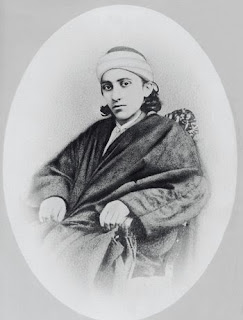Death of the Purest Branch in Akka

Death of the Purest Branch in Akka June 23rd, 1870, Mirza Mihdi (the Purest Branch, Baha'u'llah's youngest son) falls through a skylight in the prison. Baha'u'llah offers to heal him but Mirza Mihdi instead offers his life as a sacrifice so that those who desire may undertake pilgrimages. Baha'u'llah accepts and the Purest Branch dies at age 22. 70 years later, his body is entombed in the Monument Gardens on Mount Carmel. Bahá’u’lláh referred to Mírzá Mihdí on the day of his death as "he that was created by the light of Bahá" and described his dying "at a time when he lay imprisoned at the hands of his enemies" as a "martyrdom." In the same tablet, Bahá’u’lláh extols Mírzá Mihdí’s station: "Happy art thou in that thou hast been faithful to the Covenant of God and His Testament, until Thou didst sacrifice thyself before the face of thy Lord, the Almighty, the Unconstrained. Thou, in truth, hast been wronged, and to this...


